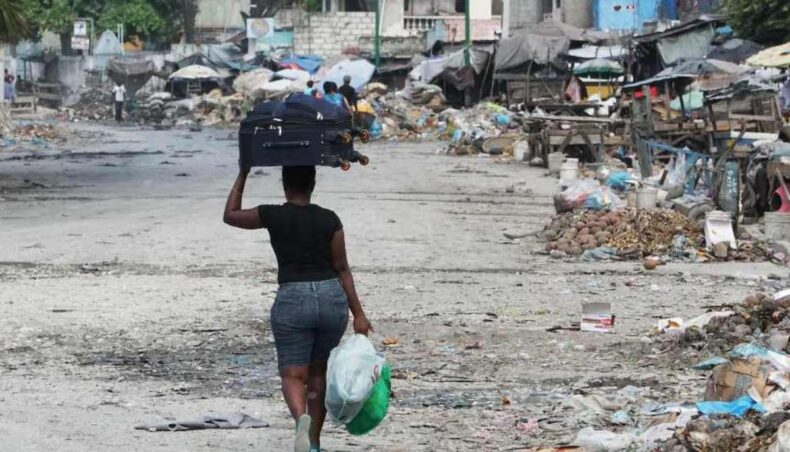According to the UN World Food Programme, increasing violence makes it impossible to carry desperately needed food and other help.
The United Nations World Food Programme (WFP) has warned that hunger is expected to intensify in Haiti due to worsening gang violence, high food prices, and rising inflation, endangering humanitarian assistance efforts in the country.
According to a statement released by WFP on Tuesday, it has become difficult for people to obtain and afford food due to the unrest in the area surrounding Port-au-Prince, the capital of Haiti, where gangs have taken control of neighborhoods and blocked roadways.
More than a million people in the capital currently lack access to food, and deliveries of locally produced goods like bananas cannot be made by road because there is a chance that the trucks would be shot at or delayed along the way, according to Jean-Martin Bauer, the WFP’s Haiti country director.
Bauer added in the statement that “large portions of the population have been shut off from the economic center of the nation.” “We are observing a huge increase in hunger throughout the nation’s capital and south, with Port-au-Prince being the hardest hit.”
According to the UN agency, armed gangs have also barricaded the road leading to the southern peninsula of Haiti, shutting off 3.8 million residents of the southern provinces from Port-au-Prince.
‘Humanitarian Aid’
According to WFP, the violence has made it necessary to provide aid via sea channels to the country’s southern and northern regions, while humanitarian workers must be transported by the UN’s Humanitarian Air Service (UNHAS).
“The only means of transportation that is secure for humanitarians is air travel, and without appropriate funds, UNHAS will be forced to close by the end of July 2022. In the end, this jeopardizes not only WFP assistance but also humanitarian efforts all around the nation, according to Bauer.
An inquiry for comment from the Reuters news agency did not receive a response right away from the prime minister’s office.
Since President Jovenel Moise’s murder in July 2021, which compounded an already unstable political situation in the Caribbean country, Haiti’s security situation has gotten worse.
A new wave of gang violence that the UN’s human rights commissioner recently described as reaching “unimaginable and unacceptable” proportions was brought on by the assassination of the president.
“Gang violence has significantly impacted peoples’ most fundamental human rights. Many people are having difficulty locating necessities like food, water, and medicines, and dozens of schools, medical facilities, businesses, and markets are still shuttered, according to Michelle Bachelet of the UN, who made the statement in mid-May.
She added that such limitations on the movement of people and goods might have long-term, disastrous effects on Haiti’s already precarious economic status.
The UN said that during coordinated armed attacks in Port-au-Prince from April 24 to May 16 alone, at least 92 people who had no affiliation with gangs and another 96 others who were allegedly gang members were slain. Kidnappings for ransom have increased in the meantime.
Since Friday, gang fights have claimed the lives of more than 50 people, according to the mayor of the area.
The UN said last week that the violence is also keeping thousands of Haitian youngsters from attending school. According to government statistics, 1,700 schools in Port-au-Prince have been closed since April 24, denying education to 500,000 pupils.
“The gang war has worsened”
According to the UN, over 19,000 people were displaced from their homes last year, including 15,000 women and children, and in 2022, “the gang war has worsened.”
Prime Minister Ariel Henry, the nation’s de facto leader, maintains that he can hold onto his position until elections can be held, therefore there is still a political impasse.
In the midst of the turmoil, Henry postponed the presidential, legislative, and constitutional referendum elections indefinitely in September.
Additionally, he has voiced opposition to the Montana Accord, a citizen-led proposal that was developed by prominent Haitian civil society organizations that would establish a two-year transitional government, claiming that “elections are the only way ahead.”













